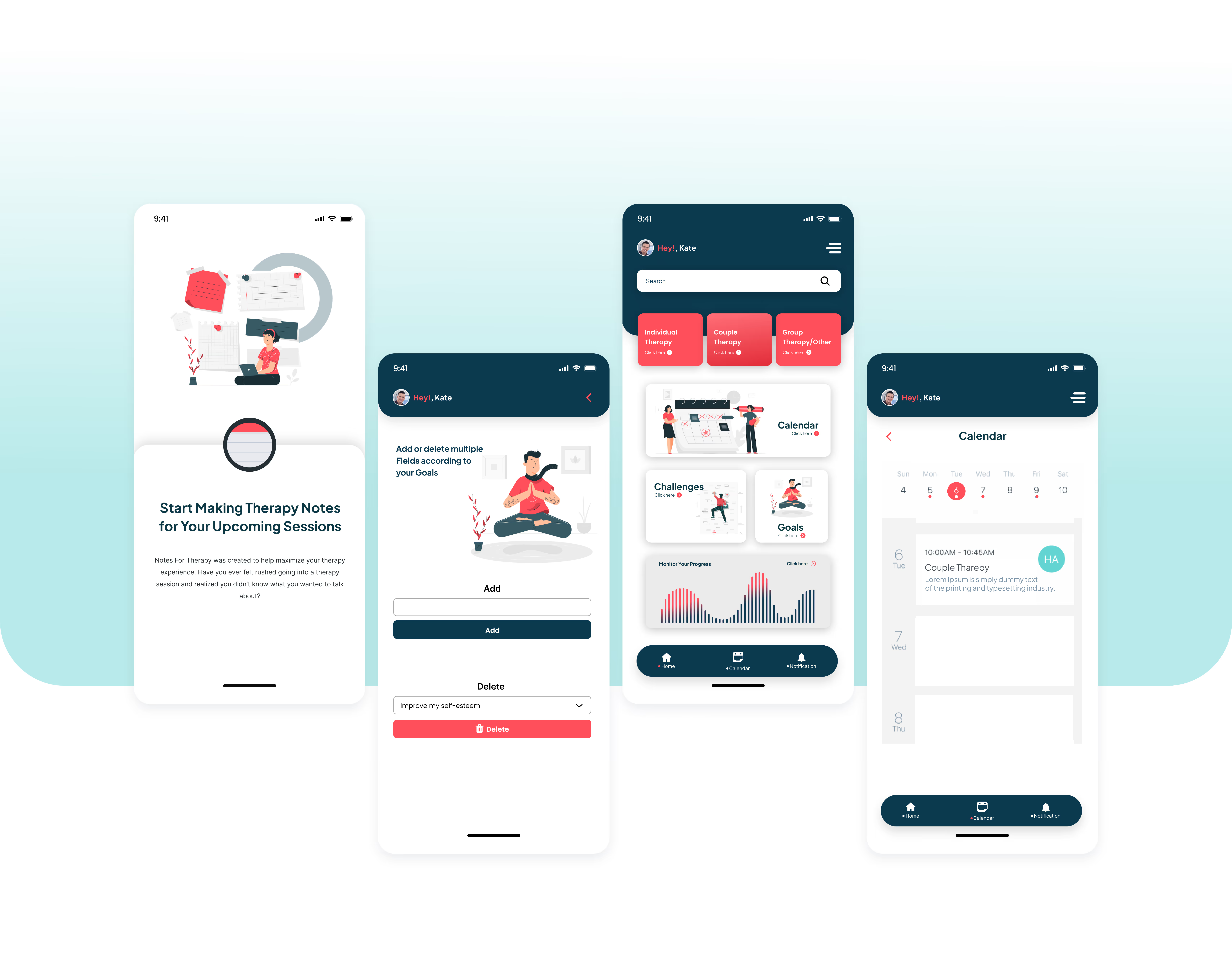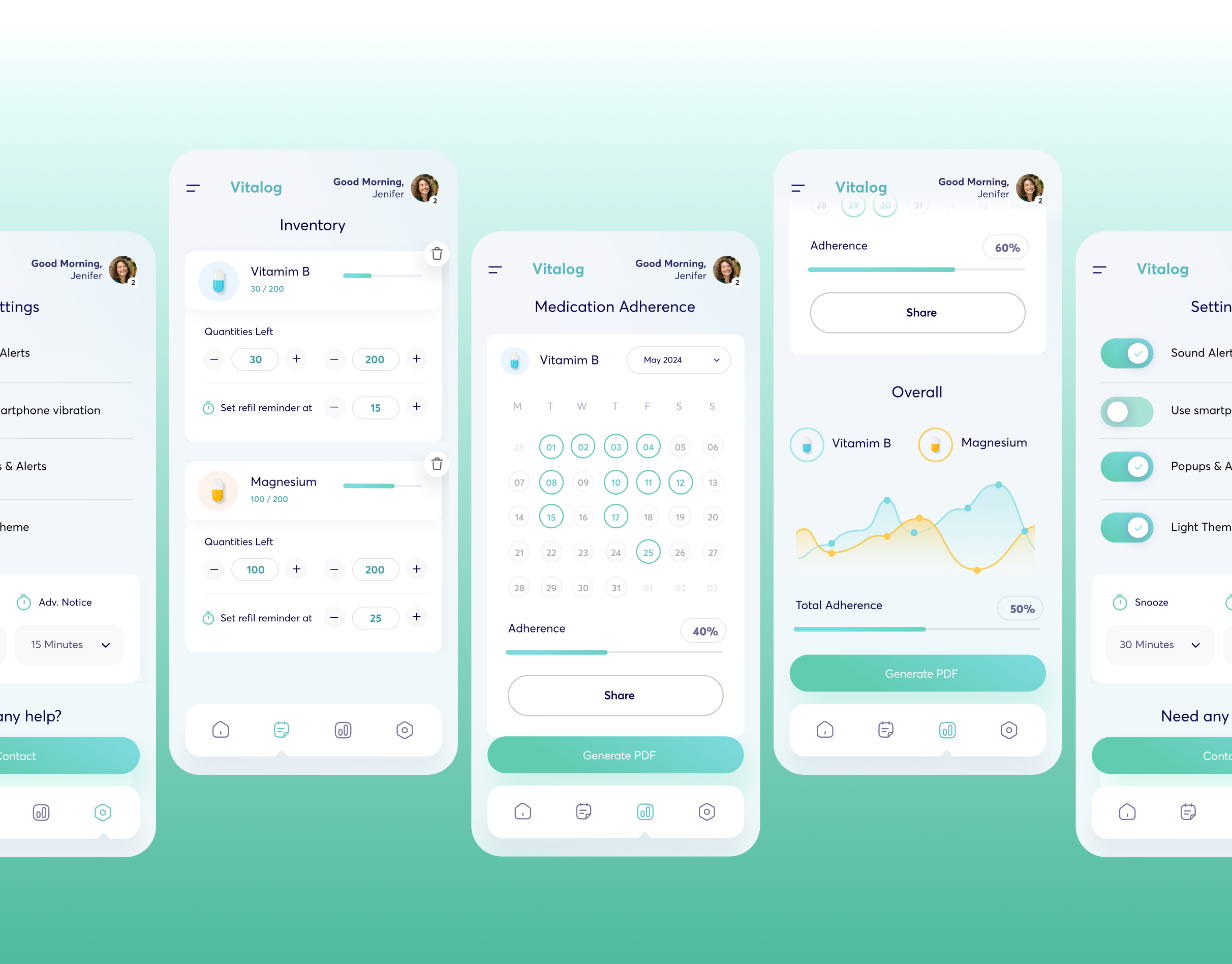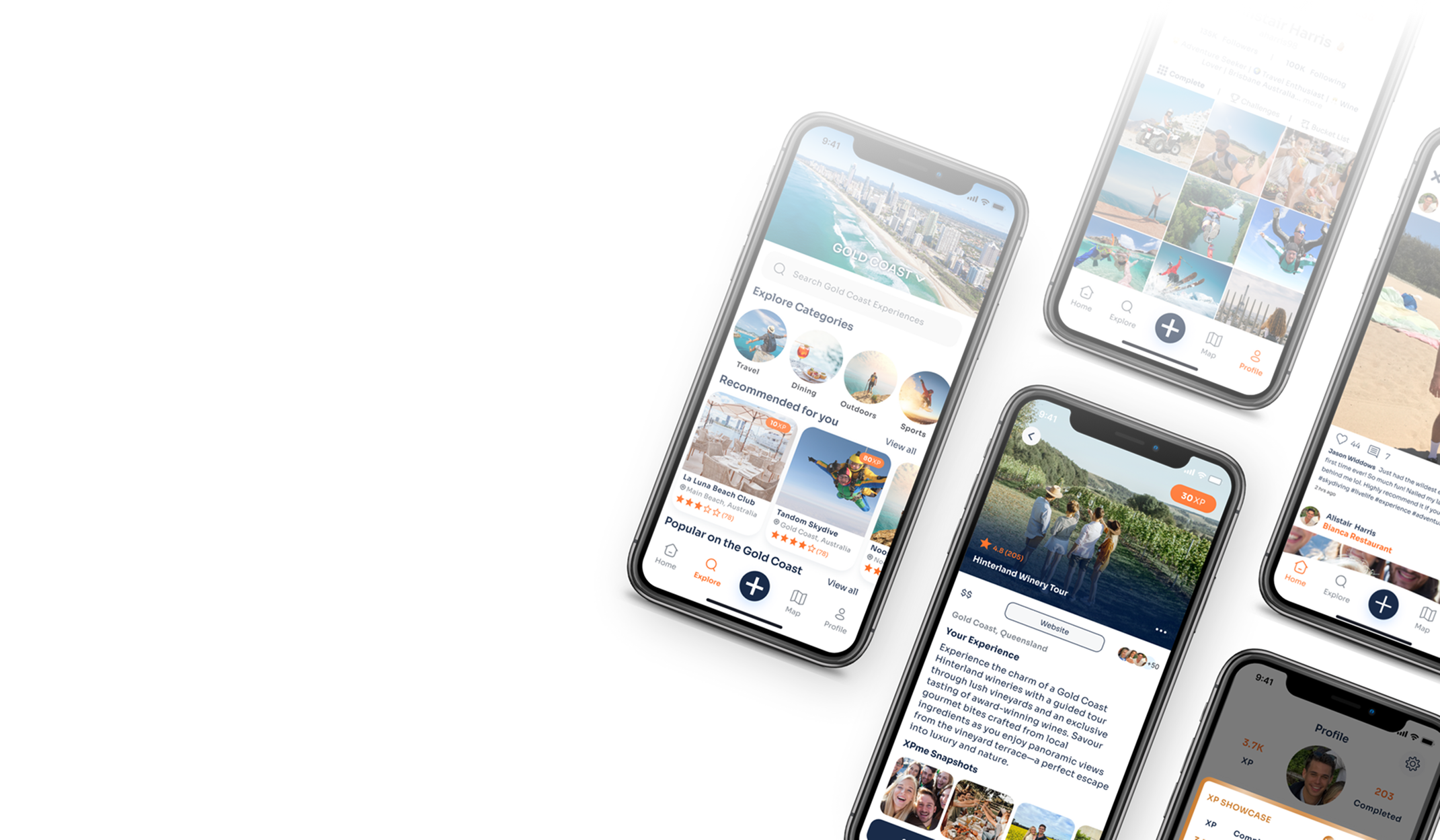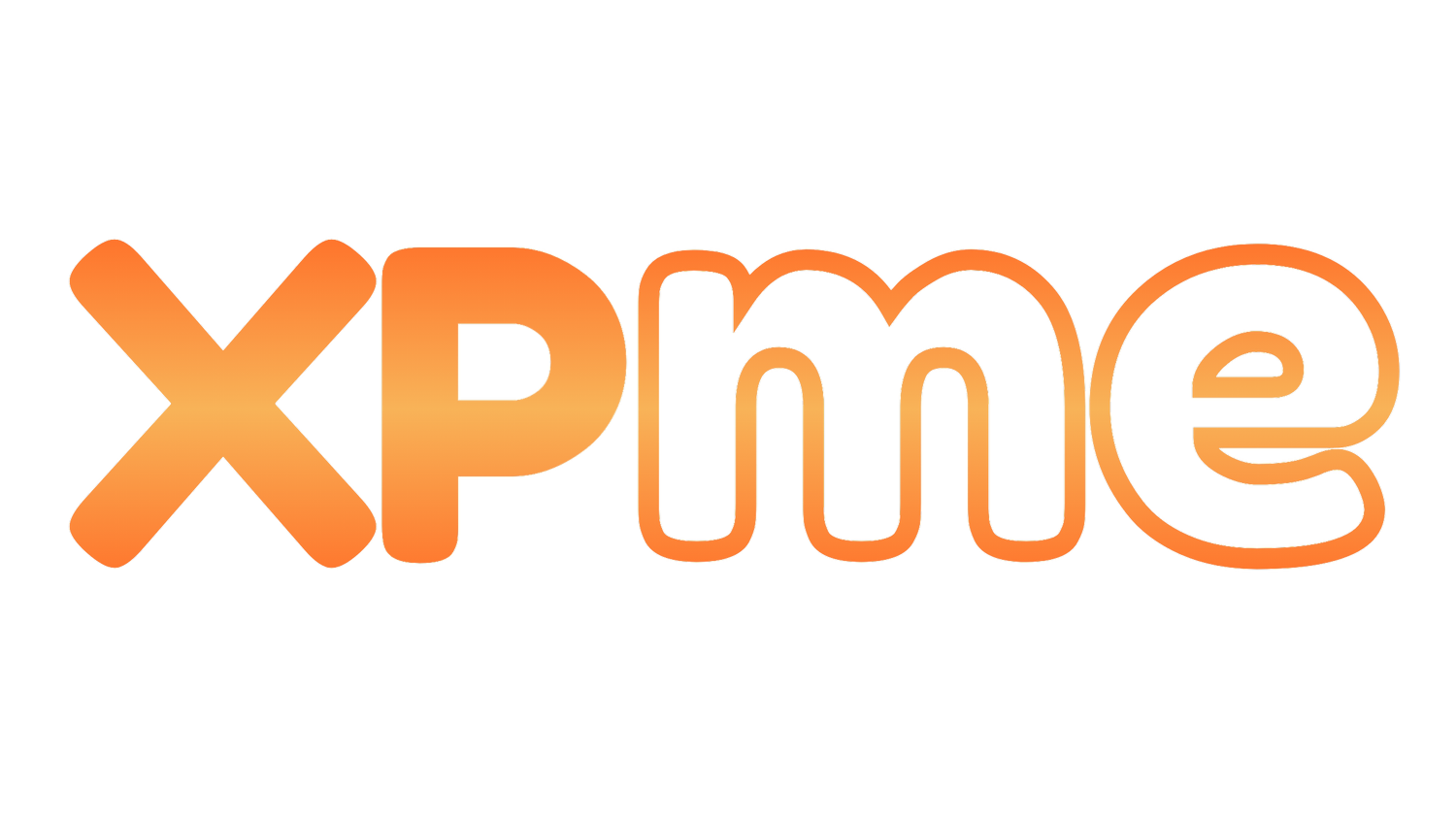Notes for Therapy: Solving the Blank Page Problem in Mental Health Apps
The best way to get the most out of therapy

About
Notes for Therapy (NFT) is an innovative app designed to maximize the benefits of therapy sessions by combining journaling, symptom tracking, and homework organization. Created by a therapist with firsthand experience as both a provider and recipient of therapy, the app aims to help users feel more prepared for therapy sessions and gain valuable insights from their therapeutic journey.
The Problem
Notes for Therapy launched with a compelling concept: help therapy clients prepare for sessions through journaling, symptom tracking, and homework organization.
But the initial launch revealed a familiar pattern in healthcare apps.
Users would download the app with the genuine intent to journal before their therapy sessions. They'd open it, see a blank page, and close it without writing anything. The data told the story: 34% retention after 30 days, with users journaling only 2-3 times per week.
The problem was more straightforward and more fundamental: people didn't know what to write about. They wanted to journal but needed guidance.
For a mental health app, this engagement gap isn't just a metrics problem. When users don't journal consistently, they arrive at therapy sessions unprepared, sessions feel less productive, and the app fails to deliver on its core promise. The client needed a solution that would help users start writing and keep writing.
How We Solved It
The challenge required more than adding features.
Through extensive analysis of user behavior and journaling patterns, a clear opportunity emerged: leverage AI to transform past entries into personalized starting points for future reflection. Instead of facing a blank page, users would see questions specifically tailored to their own therapeutic journey.
The solution centered on building 3 interconnected systems:
Contextual Reflection Engine: An AI system that analyzes each user's previous journal entries to understand their recurring themes, emotional patterns, and areas of focus. When a user opens the app, instead of a blank page, they see 3-4 reflection questions generated specifically from their own writing history.
Pattern Recognition System: Technology that identifies emotional trends and recurring topics across entries over time. If someone mentions work stress in multiple entries over two weeks, the system recognizes this pattern and surfaces it with nuanced follow-up questions.
Adaptive Engagement: Smart prompting that learns each user's journaling habits and preferences, delivering personalized questions at the right time in the right way – supportive without being pushy, insightful without being intrusive.
The technical approach prioritized privacy-first architecture (critical for mental health data), real-time personalization without performance degradation, and seamless integration with existing features like search and note organization. Every AI interaction was designed to feel like a supportive companion, not a clinical tool.
AI Features That Brought Change
Personalized Reflection Questions
The core AI feature reads through a user's journal history and generates specific, contextual questions based on their actual experiences. Unlike generic prompts, these questions reference the user's own words and themes.
Example in action: If someone wrote multiple entries mentioning exhaustion after work meetings, the AI asks: «What specifically about these work interactions is draining your energy?» or «When you leave these meetings feeling tired, what patterns do you notice?»
The questions evolve as the user's journal grows. Early entries receive broader reflective prompts, while later questions become increasingly specific to the user's ongoing therapeutic work. The AI never asks the same question twice, each prompt is dynamically generated for that moment.






Emotional Pattern Insights
The system identifies trends in emotional states, recurring stressors, and areas of progress across journal entries. Rather than overwhelming users with data, it surfaces these patterns as gentle observations.
«Over the past two weeks, you've mentioned feeling overwhelmed three times, all after meetings with your manager» gives users concrete insight into their emotional triggers.
«You've written about feeling more grounded in morning situations» highlights progress they might not have noticed themselves.
These insights don't replace professional therapy, they enhance it by helping users arrive at sessions with a clearer awareness of their patterns and progress.

Smart Blank-Page Prevention
The AI intervenes at the critical moment of user hesitation. When someone opens the app but doesn't start writing within a few seconds, a subtle prompt appears: a single, personalized reflection question based on their recent entries or identified patterns.
This gentle nudge is often enough to overcome the blank page barrier. Users have a concrete starting point, which typically leads to fuller, more meaningful journal entries. The feature respects user autonomy-prompts can be dismissed or ignored, while providing support exactly when it's needed.

Result
User Engagement
Daily active users increased by 3x within the first three months of AI implementation. Users who previously opened the app sporadically began making it part of their regular routine.
Average journaling frequency jumped from 1 times per week to 2-3 times per week. More significantly, session duration increased by an average of 2 minutes, users weren't just opening the app more often, they were writing more substantial entries.
52% of users who engaged with AI-generated prompts returned the next day, compared to 23% return rate for users who journaled without AI prompts. The personalized questions created a compelling reason to come back.
Business Metrics
30-day retention improved from 34% to 47%, a 13 percentage point increase that fundamentally changed the app's unit economics. Users who stayed past the first month became long-term, engaged members of the community.
Premium subscription conversions increased by 1.5x as users experienced clear value from the AI features. The conversion improvement came from genuine product value, not pricing changes or marketing adjustments.
New user activation improved dramatically, with meaningful engagement happening in the first session rather than requiring multiple attempts or abandonment.
Clinical Impact
Therapists reported that clients arrived at sessions noticeably more prepared. One therapist observed: «Clients are now arriving with clear topics to discuss instead of spending the first 15 minutes figuring out what to talk about.»
The quality of therapy sessions improved as clients had already processed initial thoughts through journaling and arrived ready for deeper work. Therapists began actively recommending the app to their clients, a significant validation in the mental health space where professionals are appropriately cautious about technology recommendations.
Users reported feeling more connected to their therapeutic journey between sessions, with the app serving as a bridge rather than a replacement for professional care.
Timeline to Impact
Engagement & Retention:
- Daily active users tripled in just 3 months
- Journaling frequency increased from 1x/week → 2–3x/week
- 30-day retention jumped from 34% → 47% (+38%)
Business Growth:
- Premium conversions up 1.5x due to real product value
- Average session time increased by +2 minutes, signaling deeper user engagement
- New user activation improved by 42%, with meaningful journaling starting in the first session
Clinical Impact:
- 70% of therapists reported clients came more prepared to sessions
- App recommendations by therapists grew by 2.3x
- Users reported feeling more in control and connected between sessions
All of this happened within 3 months of launching AI features, a rapid validation that personalization and smart guidance can transform engagement in mental health tech.
Notes for Therapy demonstrates how strategic AI integration solves the engagement challenges that limit most healthcare apps. When AI addresses genuine user problems, like the blank page barrier, it drives measurable business results while enhancing clinical value.

Put a trust in our battle-tested team and our innovative development processes. No mess - No stress work attitude, only good results
%203.png)






